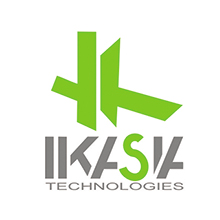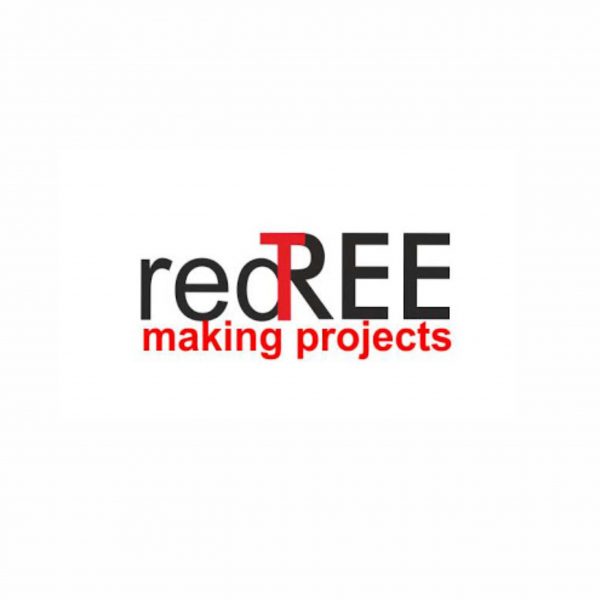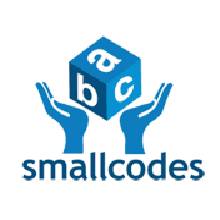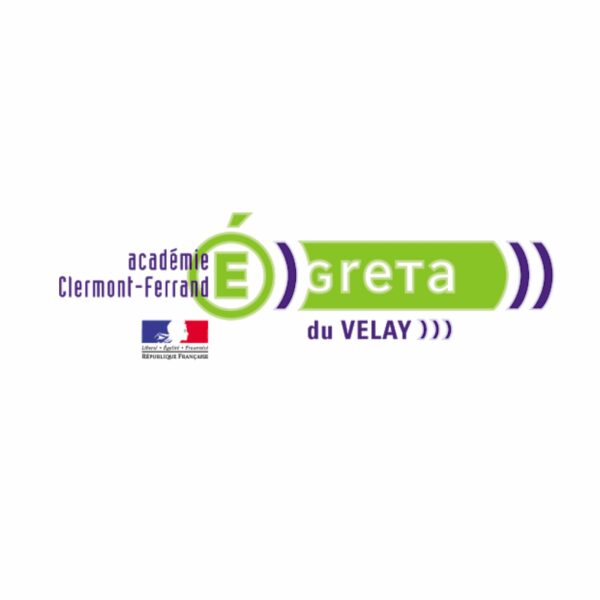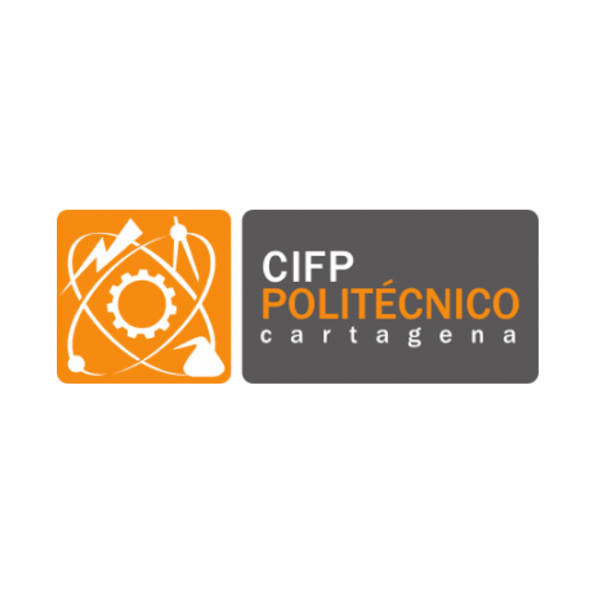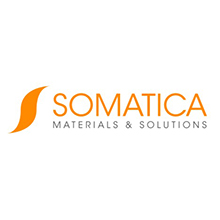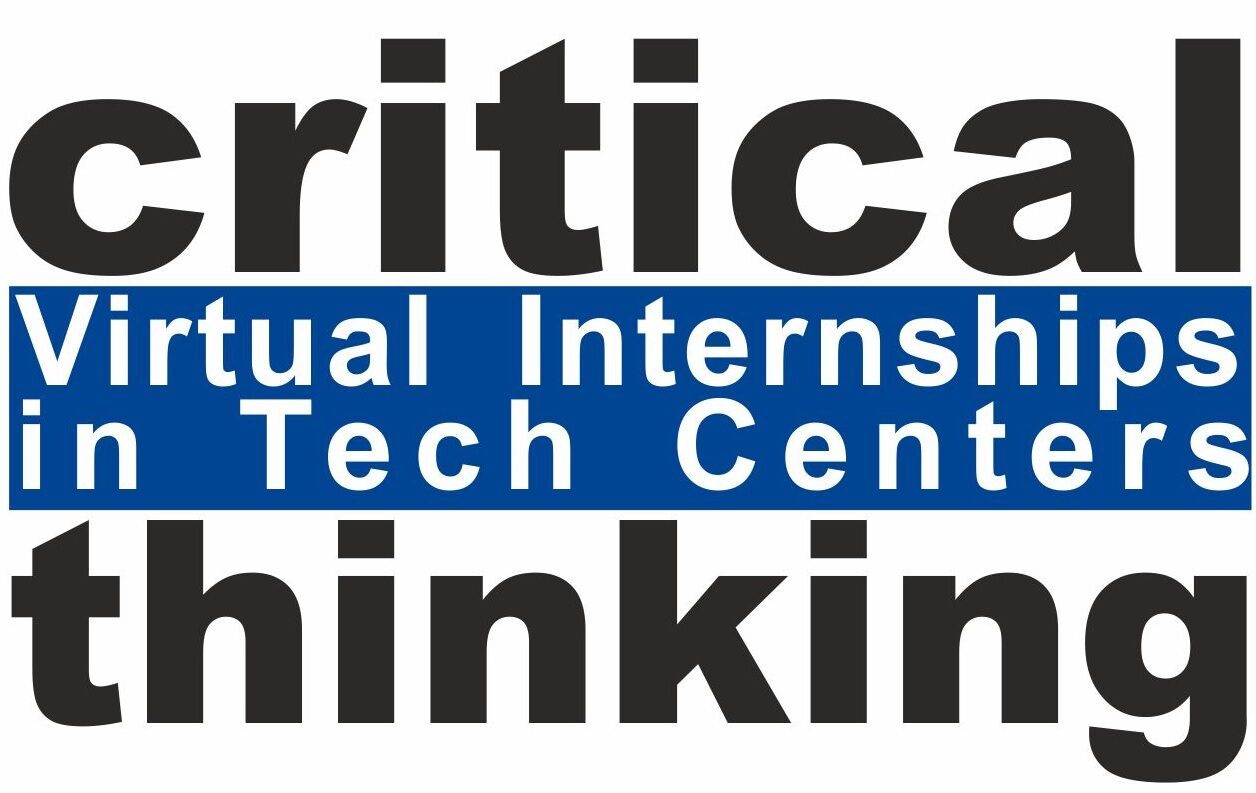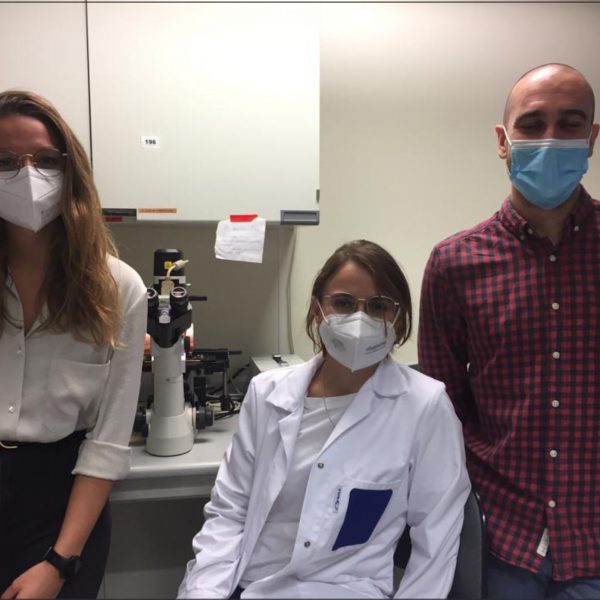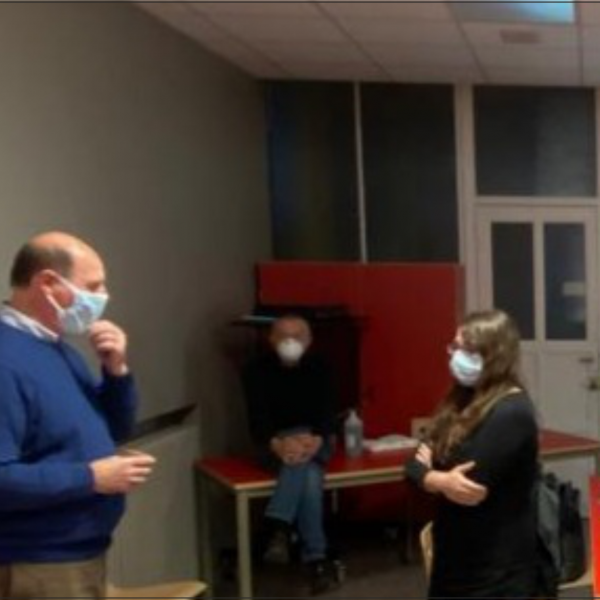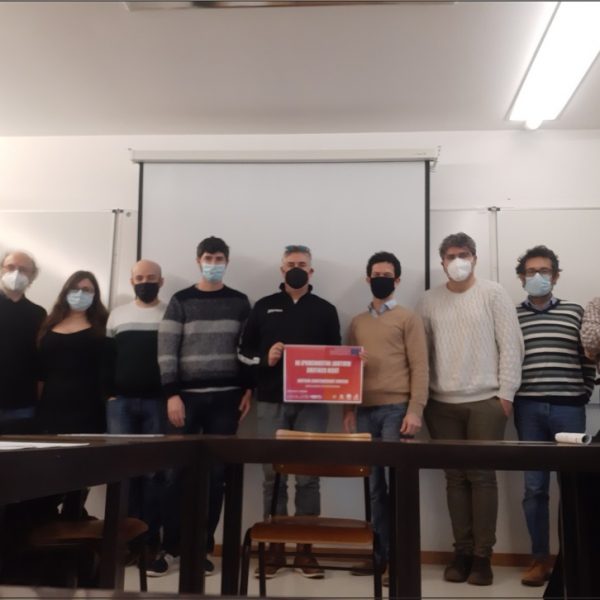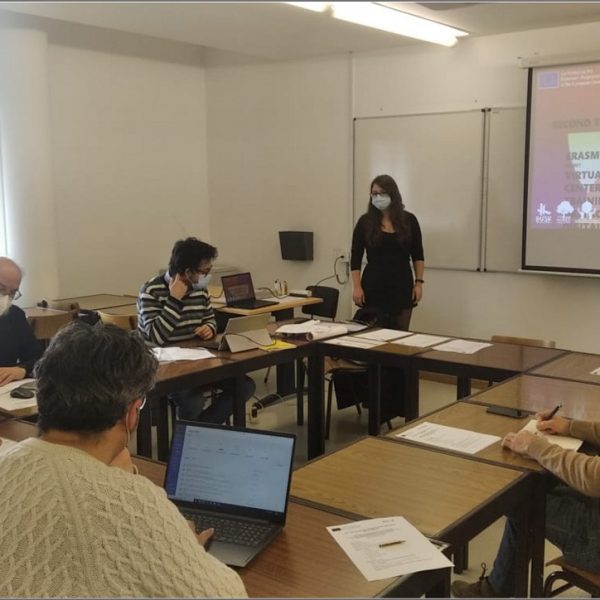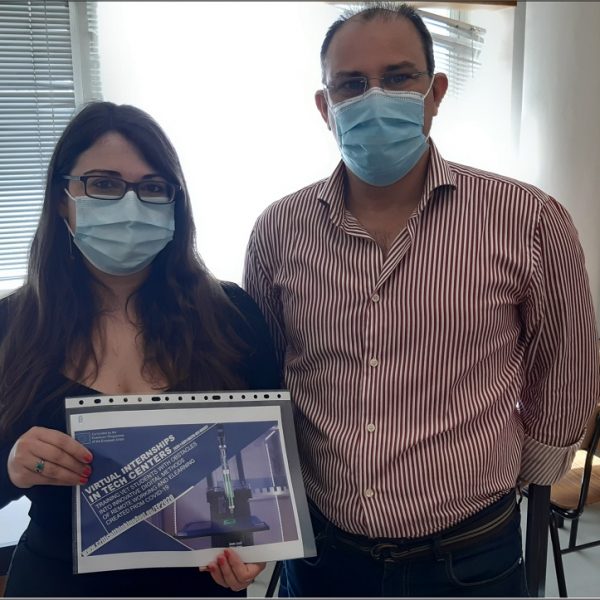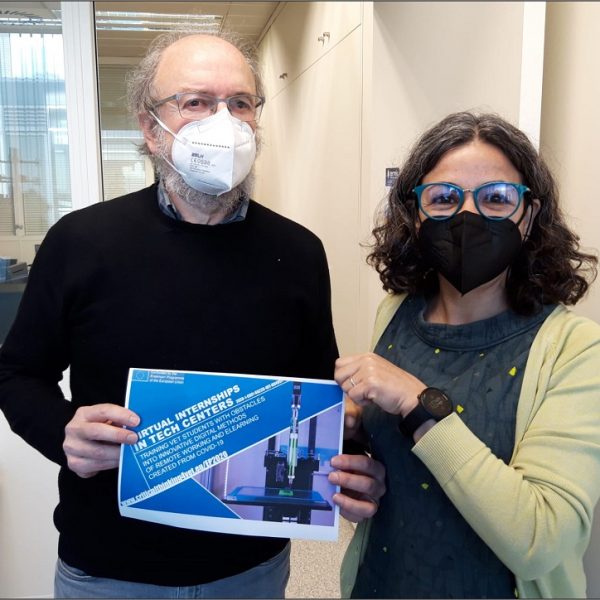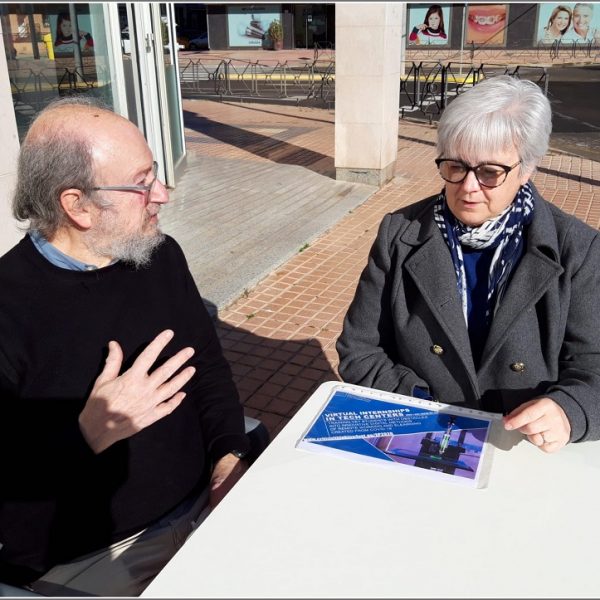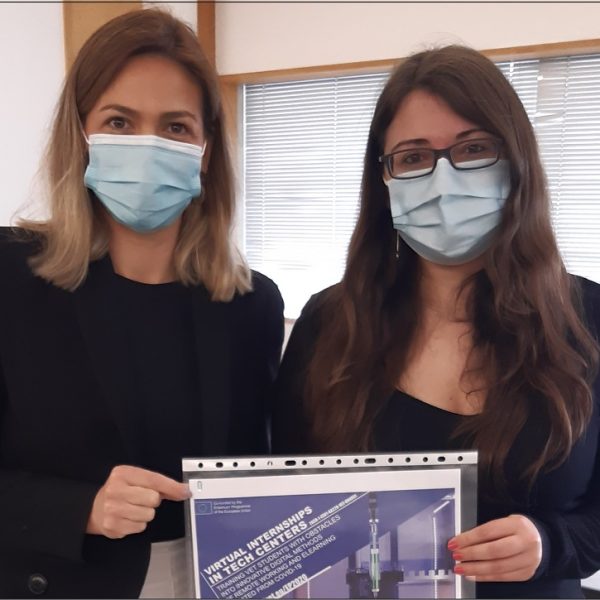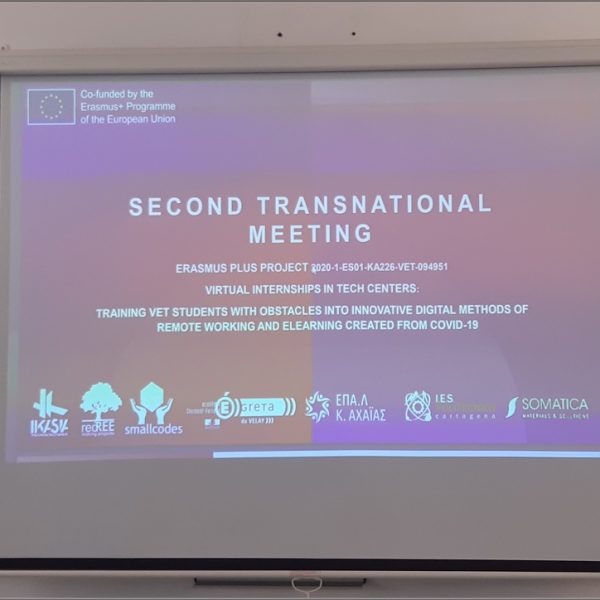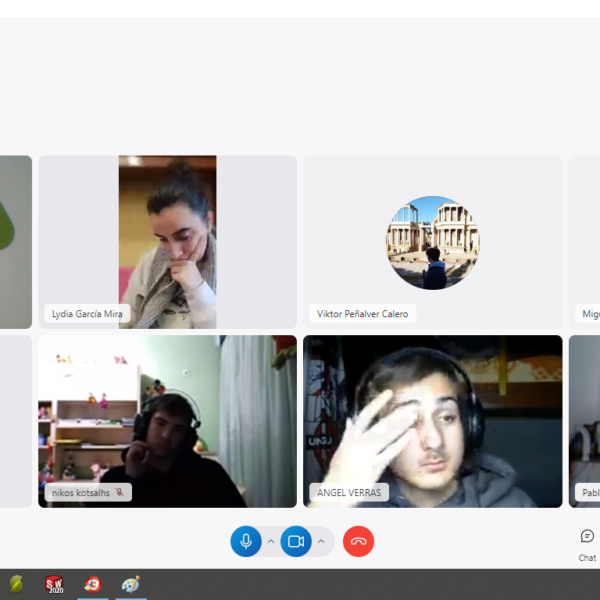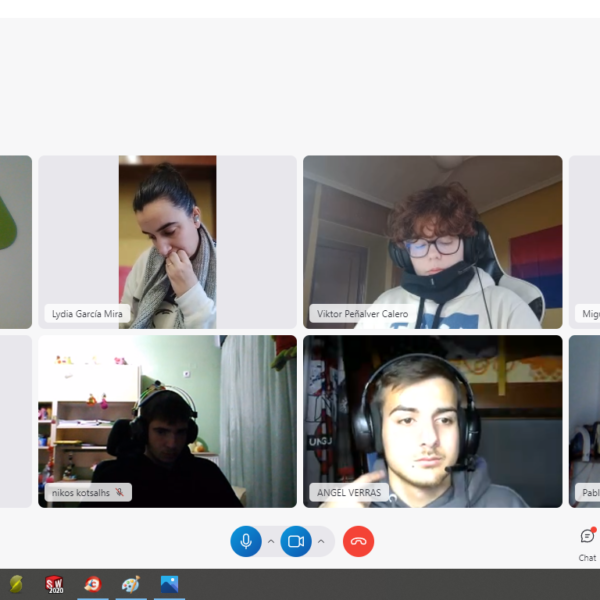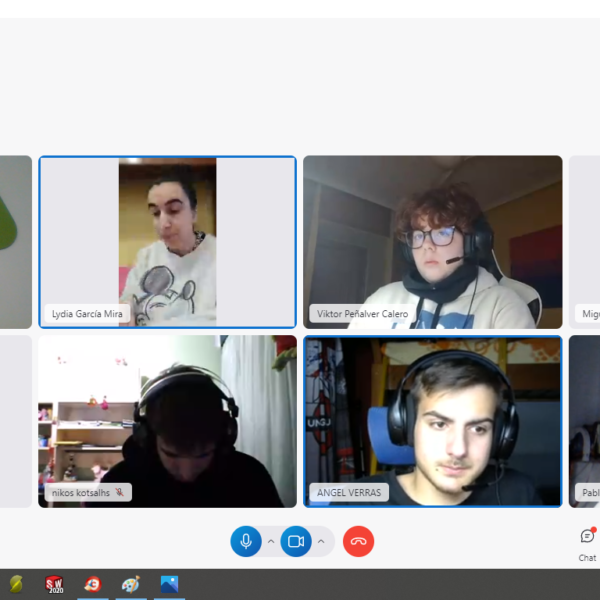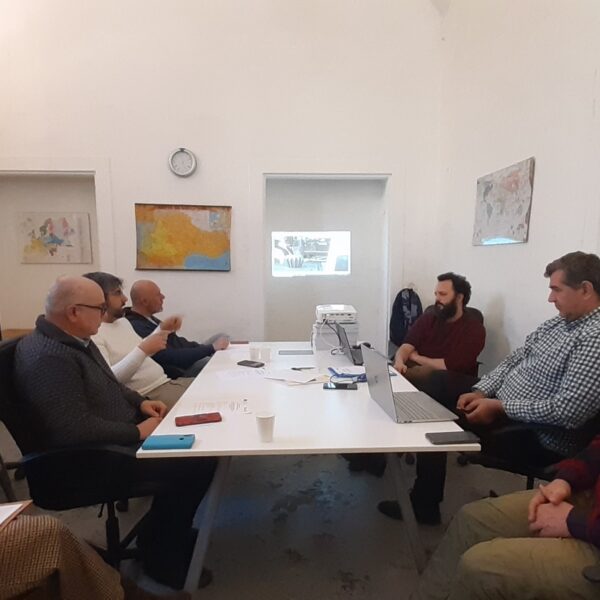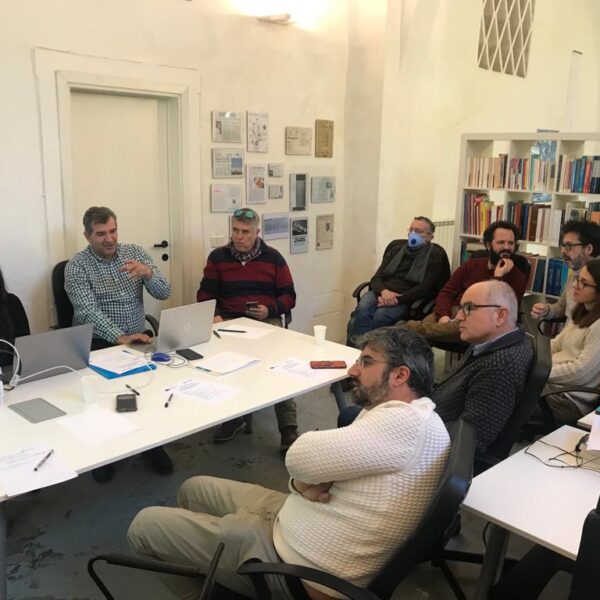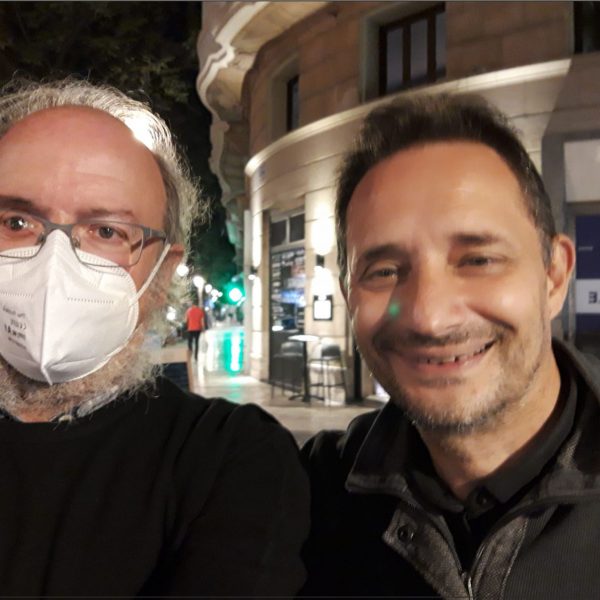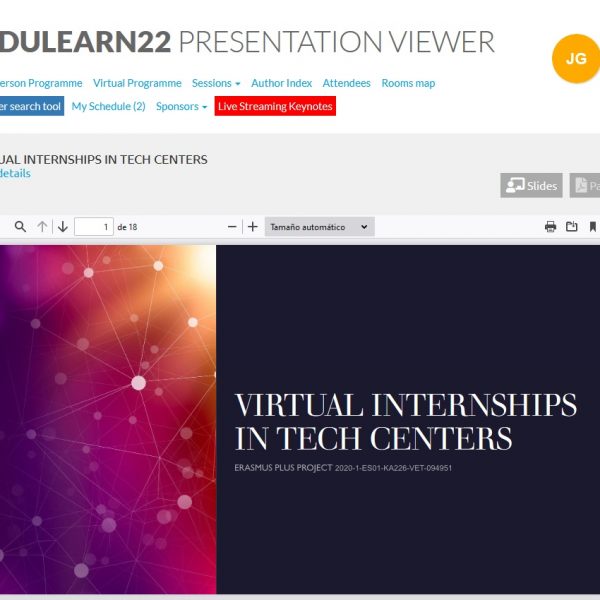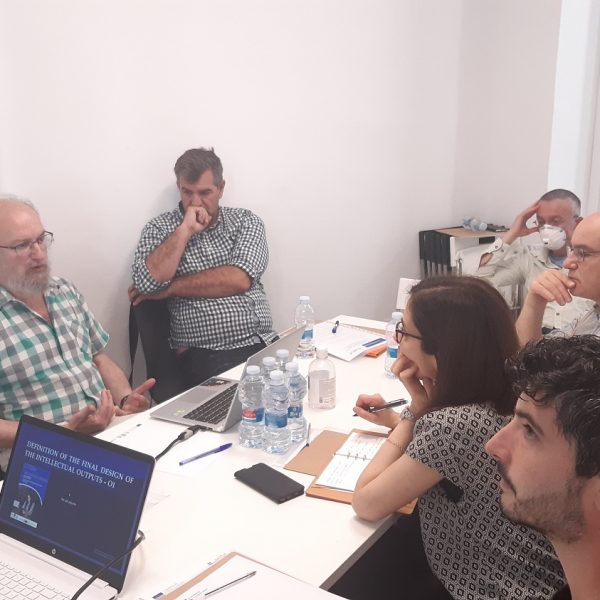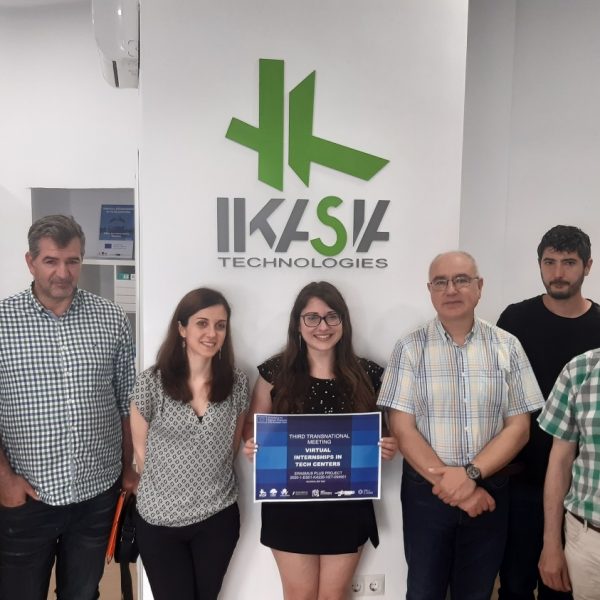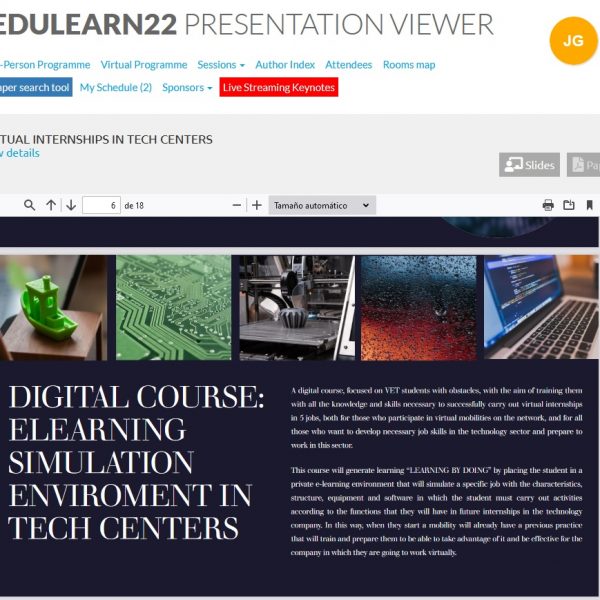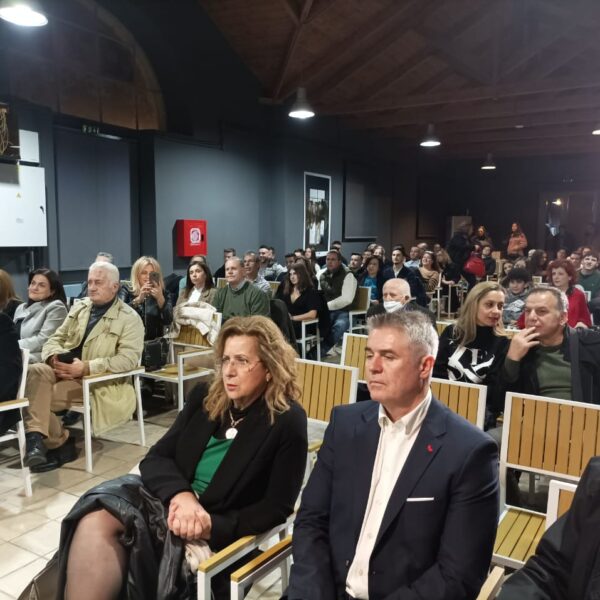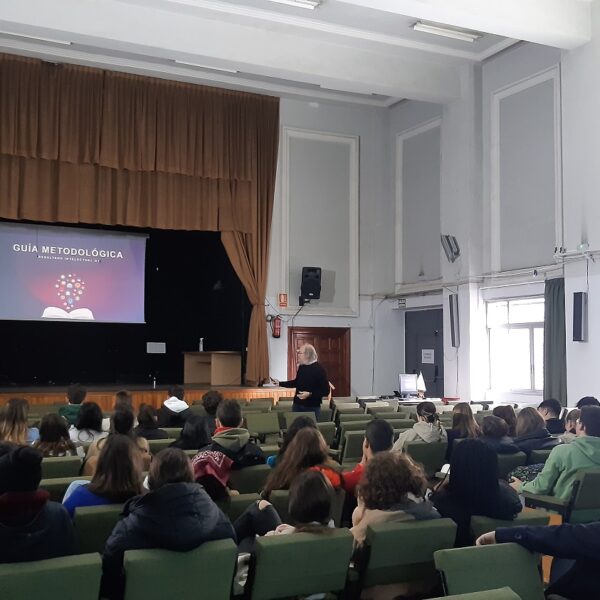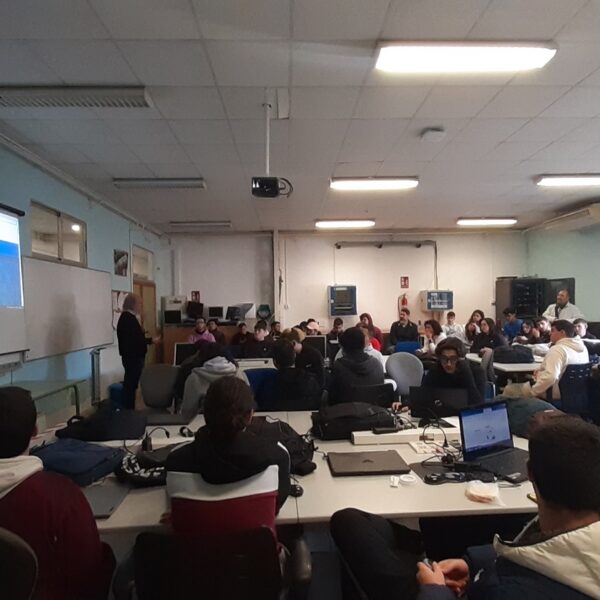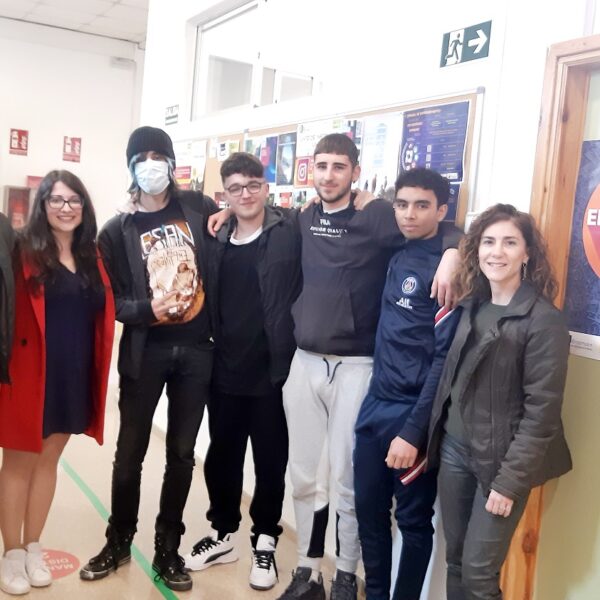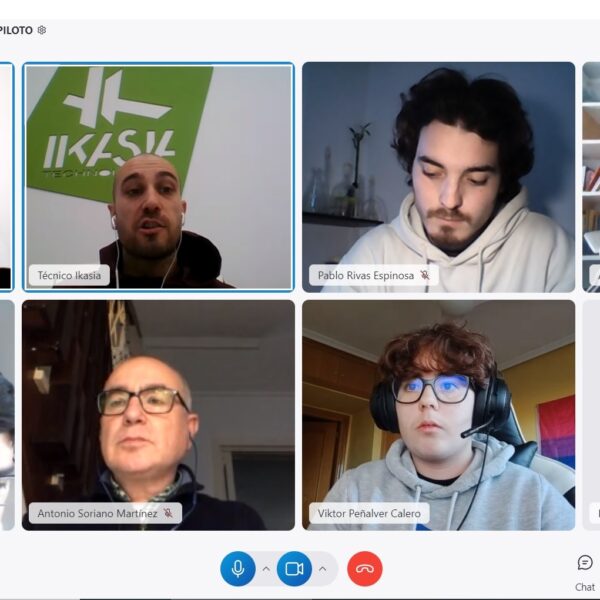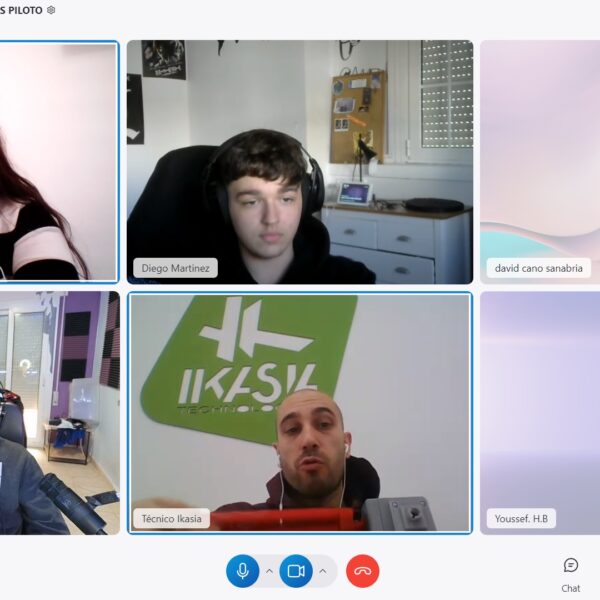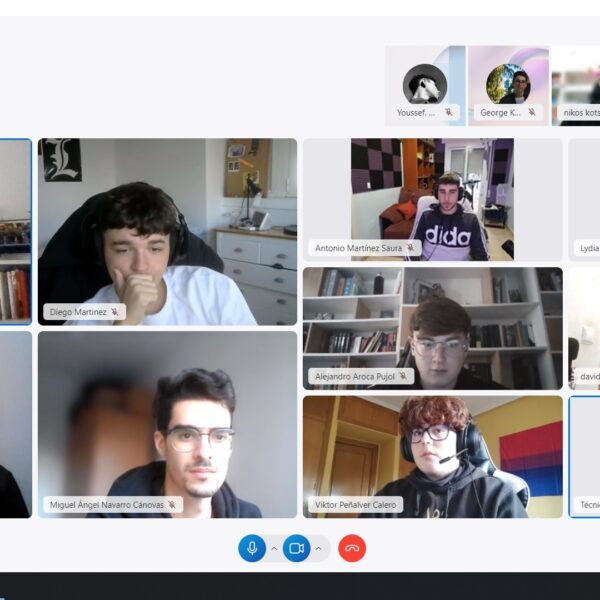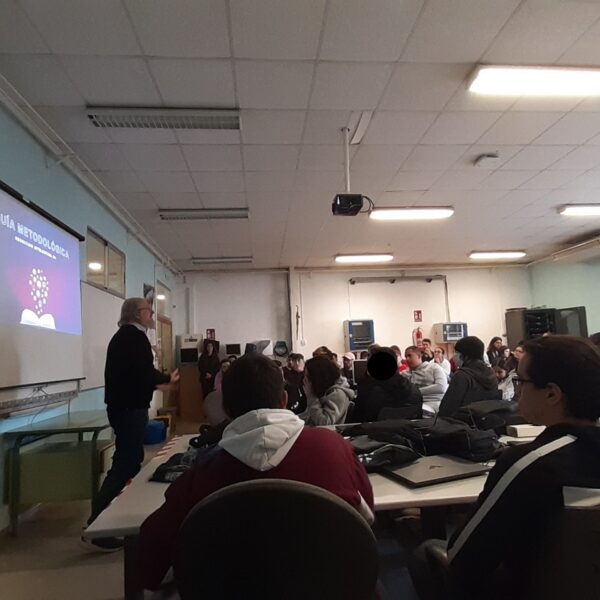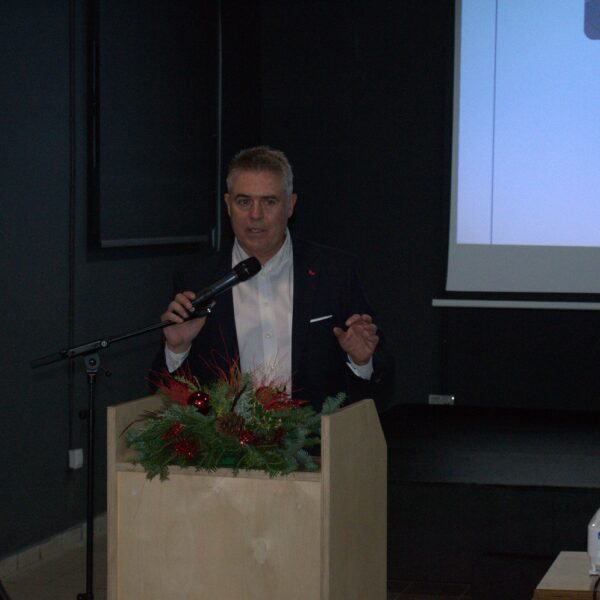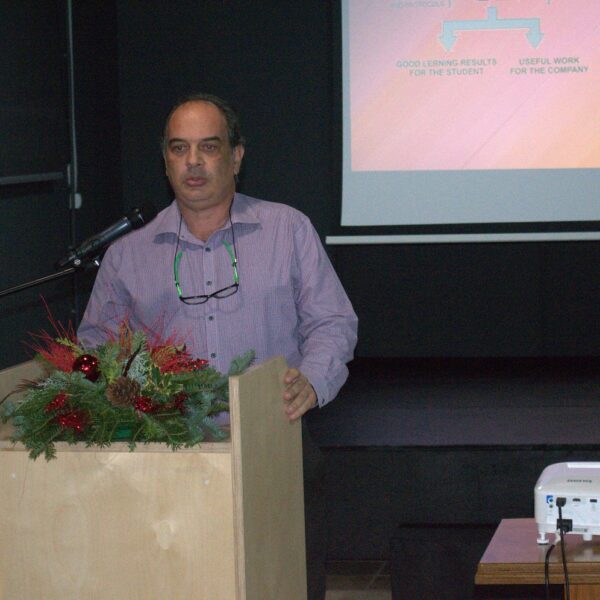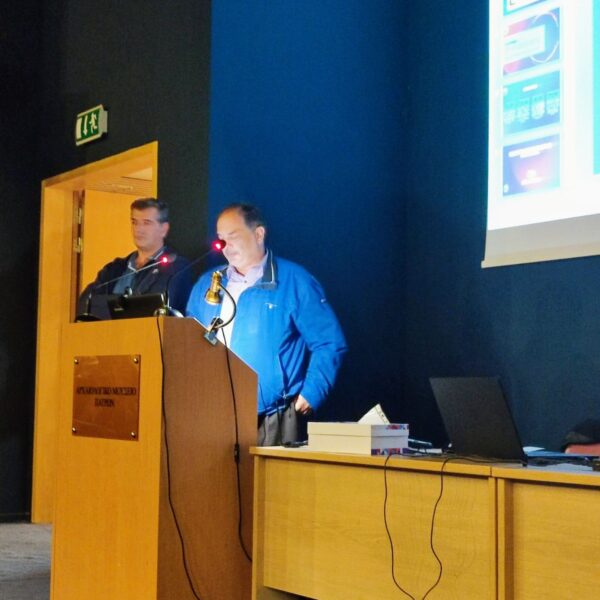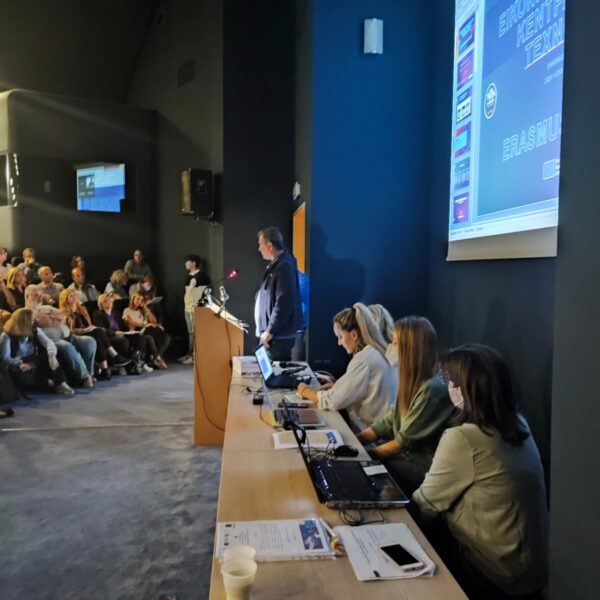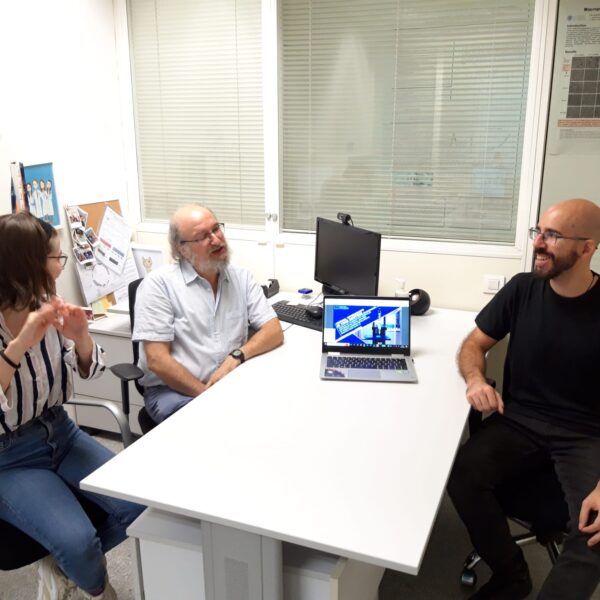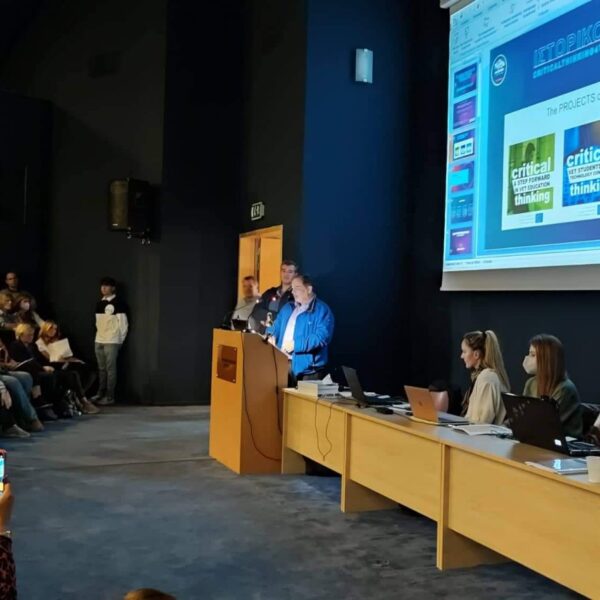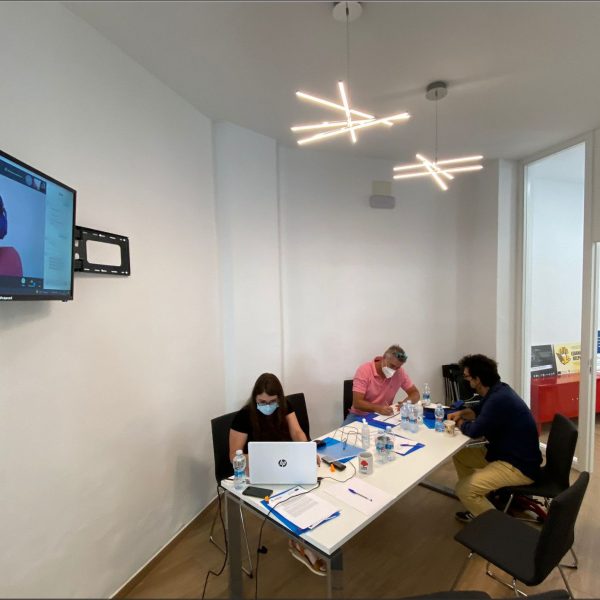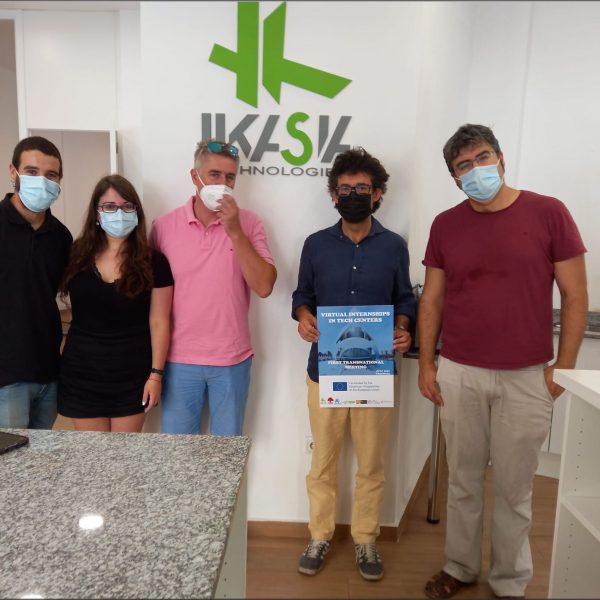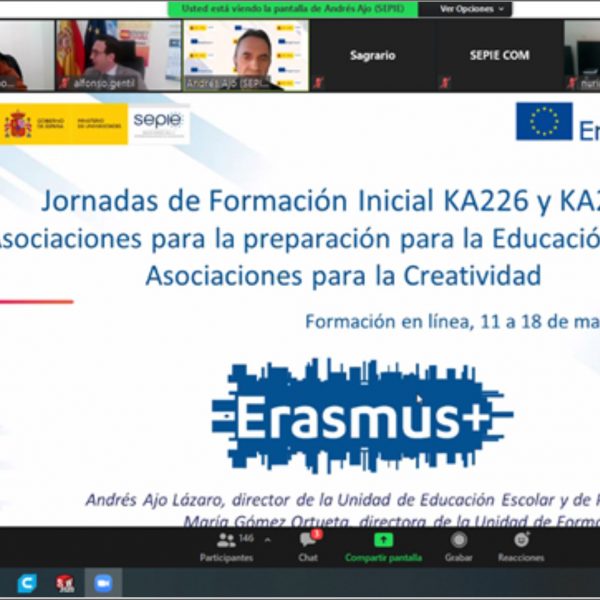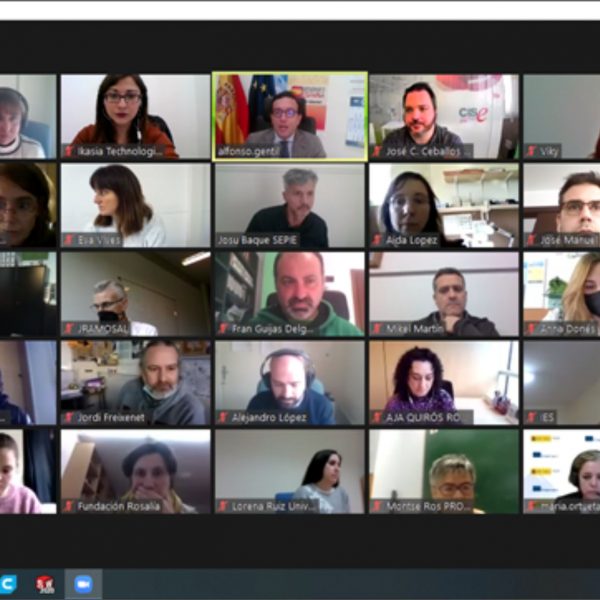| The severe COVID-19 pandemic has caused dire health, economic, social, and political consequences in the short and medium term. After coronavirus, changes to the workplace and education are going to be significant. The lines of work established by the different European governments advocate decisively on teleworking, but this requires completely new skills from the worker, for which they have not been trained: initiative, responsibility, self-management... especially in the technology sector where responsibility and demand is much greater. In the educational field, measures are being structured to promote virtual learning, especially in the field of Vocational Training, facilitating combined and virtual mobility as an alternative to on-site learning, as response mechanisms to new waves of COVID-19, but also as learning mechanism for the new work environment that is expected to be established in the future. These measures, however, are not easy to implement and require creating new tools, or adapting existing ones to totally new methodologies to which neither companies nor students and teachers are used to. This is especially important in a sector as dynamic and complex as technology, and more so when it directly impacts young persons in a situation of exclusion. These VET students find even more barriers in situations like the one we are living, which make it difficult for them to participate in innovative internships that require specific equipment and training. This is why the Erasmus Plus Project “VIRTUAL INTERNSHIPS IN TECH CENTERS” have had the objective to promote the inclusion and employability of vocational training students at risk of social exclusion through the creation of mechanisms that allow them to carry out virtual internships in high-tech centers and develop critical and scientific thinking. All this to respond to the terrible situation derived from the COVID19 pandemic, which will promote teleworking and greater digital training. Through this project we have gone one step further into a new model of joint work between vocational training centers and technology companies. This will promote the students’ access to the technology sector, especially to those with obstacles, and will directly involve teachers and educational establishments in cutting-edge research projects. |
OBJECTIVES & BENEFICIARIES
The main beneficiaries of this project are VET students at risk of exclusion from especially disadvantaged areas. This project contributes to your job training by adapting it to the post-COVID-19 reality.
OUTPUTS & OTHER RESULTS
This project includes the realization of two high-quality intellectual results and replication capacity, as well as various tangible results.
IMPLEMENTATION ACTIVITIES
Throughout the project, 4 transnational meetings in Spain, Italy and Portugal has been held, as well as various national activities for the development of results, bilateral meetings with experts…
VISIBILITY & DISSEMINATION
In order to give visibility to the project and the erasmus plus program, as well as to disseminate the results during the duration of the project, throughout this project we have carried out various activities.
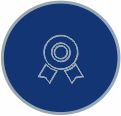
ACHIEVEMENTS
After 24 months of hard work together we consider that the project has been a great success and we are proud to have achieved the following achievements.
EVALUATION
The evaluation in all the phases of the project is a fundamental tool to ensure the fulfillment of the objectives, quality of the results and the impact of the project.
PILOT TEST
Pilot test are an essential resource to guarantee the success of the project. In this project they are focused on recipients who can use the results.
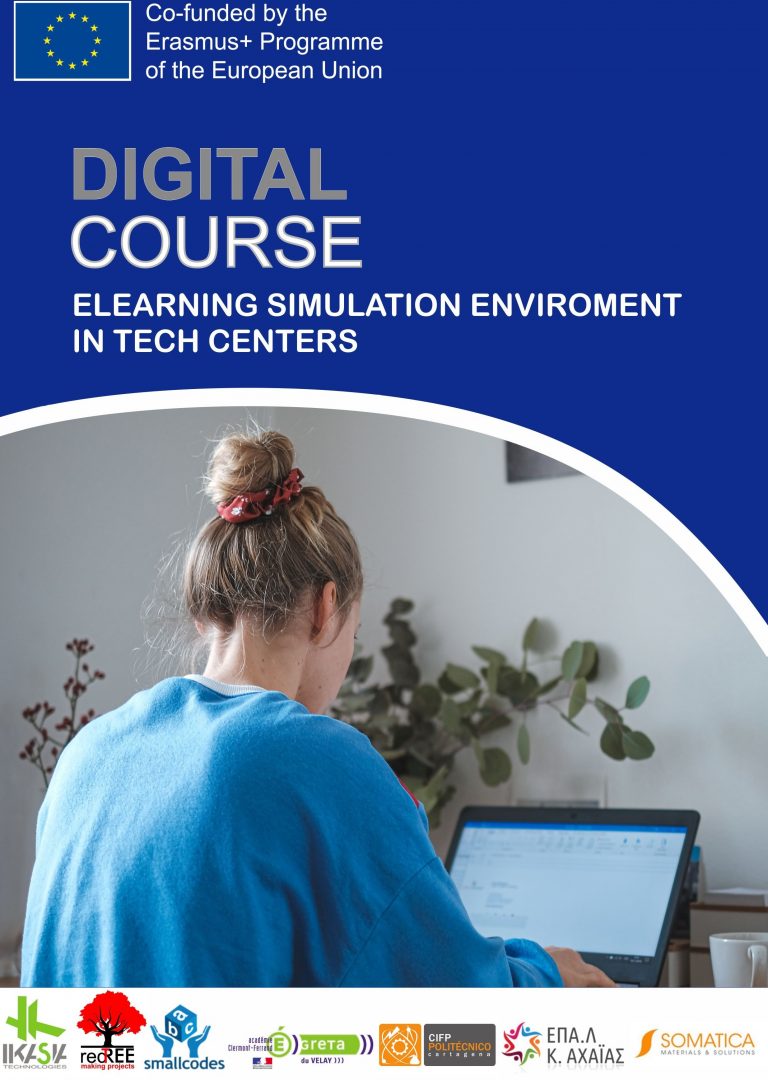
DIGITAL COURSE
O2: DIGITAL COURSE: ELEARNING SIMULATION ENVIROMENT IN TECH CENTERS
It consists of a digital course, focused on vocational training students with obstacles, with the aim of training them with all the knowledge and skills necessary to successfully carry out virtual internships. This course, based on self-study, makes it possible to fill the gaps inherent in virtual labor mobility for both VET students (difficulty in participating, barriers to integration in work teams, frustration, tension and restlessness, as well as a feeling of feeling little supported) and for the host technology company (having to invest a lot of time in the student’s training, few results and little efficiency in their work).
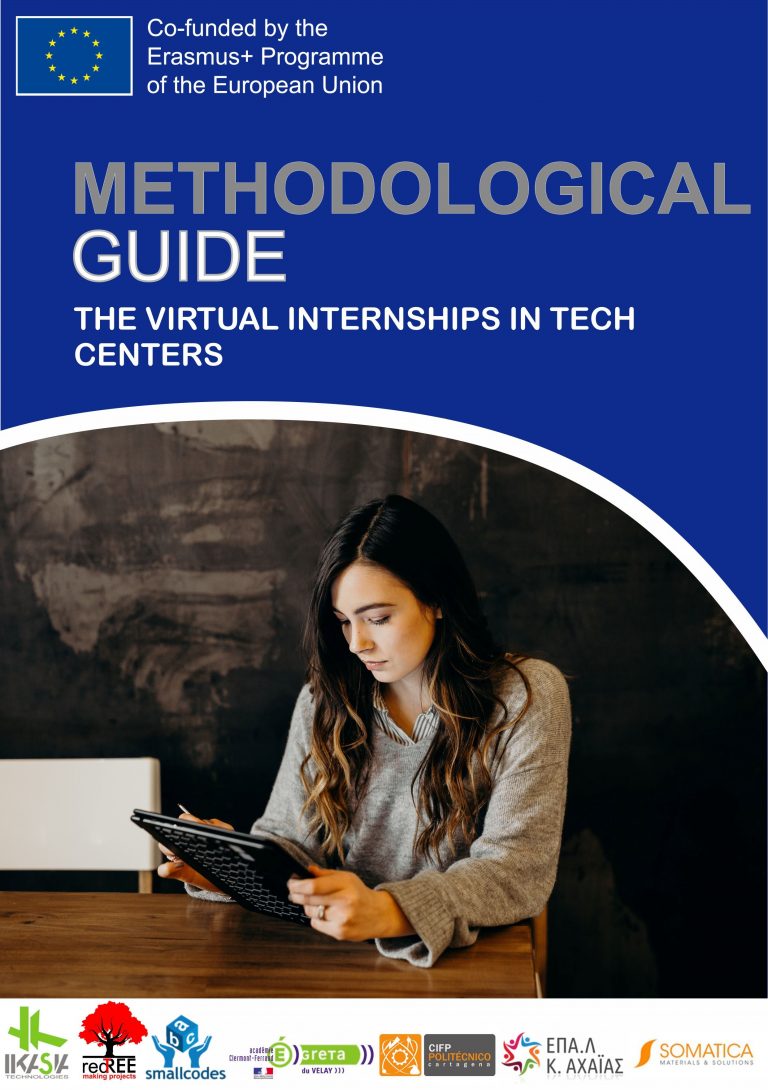
METHODOLOGICAL GUIDE
O1: METHODOLOGICAL GUIDE: THE VIRTUAL INTERNSHIPS IN TECH CENTERS
This guide, aimed at teachers of VET centers and tutors of technology companies, is focused on offering all the information, protocols, documentation and control instruments that technology companies and VET centers require to implement innovative and effective virtual practices that do not require large investments or seasonal costs, as well as adapted to the requirements of telework and the economic, social and cultural obstacles faced by the VET students benefiting from this project.
I find the project very interesting and fun. It is a job that is very good, it is not very complicated to do, besides that it is an interesting project. And the companions, and the tutors of the project are very nice, a very good coexistence.
Viktor Peñalver Calero – Chemistry student – CIFP POLITÉCNICO (SPAIN)
This pilot project is helping me to learn and develop, teamwork is very good digitally and it’s a fantastic team
Antonio Martínez Saura – IT student – CIFP HESPÉRIDES (Spain)
I find the way of working very interesting, I am learning how to work in digital work environments, and I think it is an enriching experience
David Cano Sanabria – IT student – CIFP HESPÉRIDES (Spain)
Hello, my name is Alejandro and I´m a telecommunications student at CIFP Politécnico in Cartagena, my teachers got an email related to the project and since I´m an Erasmus student I decided to sign in, they put me in the informatics team and, since my studies emphasize electronics, I din´t feel confident enough at the begining but so far so good, I felt included from the first moment I got into aprivate meeting with my team and since they are all computing students, my own knowledge came in pretty handy for them and i ended up feeling pretty useful. This experience has made me change my pesimist vision about teamwork and I hope I can learn usefull things from my teammates and apply my own knowledge in order to make their labors easier.
Alejandro Aroca Puyol – Electronics student – CIFP POLITÉCNICO (SPAIN)
I like these kind of projects and it’s a very good idea to participate in because you can learn a lot of things. Working virtually it’s a great idea because you can work at your home and you can also meet new people with this project. Also working as a team it’s a very good idea for us to complete our tasks. I would like to work this way in a technology company
Nikos Kotsalis – Mechanics student – 1st EPALGEMATIKO LYKEIO KATO ACHAIAS (Greece)
Until now I have enjoyed working virtually. Because I have the opportunity to work whenever i want and generally I have a very flexible timetable. Also I love working with guys who share the same interest about informatics as i do.
Angel Verras – IT student – 1st EPALGEMATIKO LYKEIO KATO ACHAIAS (Greece)
For me, this project is a learning opportunity because being from the branch of chemistry and microbiology, I find it very interesting how the bioreactor works. By working as a team it encourages communication and diversity of opinions, helps social skills evolve, in addition to improving our level of English a lot since group meetings are in English. In conclusion, it is a very interesting project where I have discovered how a bioreactor works and it has given me the opportunity to work in a great team at an international level.
Lydia García Mira – Chemistry student – CIFP POLITÉCNICO (SPAIN)
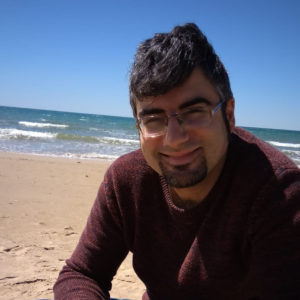
Luis Gómez Estrada
Luis Gómez Estrada, was born in Valencia in 1980, with a Bachelor’s degree in Industrial Design by “Universidad Politécnica de Valencia”, experienced in the research field at the “Instituto de Biomecánica de Valencia” (UPV). Actually is CEO of Ikasia technologies and has experience as head of the 3D department in an engineering services companies. He has a broad experience in European and international project’s management and coordination.

José Luis Gómez Ribelles
José Luis Gómez Ribelles is a full professor at the Universitat Politècnica de València, carrying out his research work at the Centre for Biomaterials and Tissue Engineering, CBIT, of that university. He is currently the principal investigator of one of the research units of the CIBER-BBN of the Instituto de Salud Carlos III. His current line of research focuses on the development of biomaterials for tissue engineering and regenerative medicine.
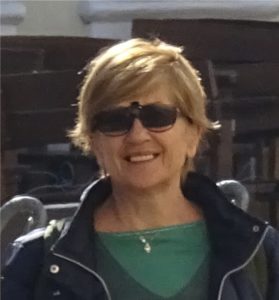
Concha Solano Martínez
With a degree in English and German studies (University of Valencia, 1980), I have worked as a secondary school teacher (retired 2018). I have always had a strong interest in methodology. I worked for a school term in Beaconsfield grammar School as an exchange teacher. Member of the work team for the elaboration of the curriculum of the program “Integrated curriculum mec-British council”. I have also been a teacher trainer for the Teaches and Resources Centre in Murcia.
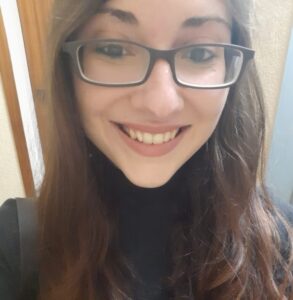
Laura Gómez Estrada
Qualified as a VET Technician, Laura has been incorporated in Ikasia in 2018 in the scientific and educational project development team. Having exhibited organization and managing skills, has since been responsible for projects coordinated by Ikasia included in the Erasmus + Program in the field of professional education. Laura is a young, easygoing, and hardworking person. Her diverse professional parkours led to the development of a broad range of skills, from organization to and interpersonal skills, which she transposes to her professional everyday life.
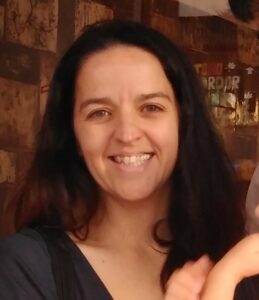
Raquel Navarro Cerveró
Raquel Navarro Cerveró is a social worker, an equality agent and has a Master Degree in Labour Risk Prevention, and she have worked with the association movements in Valencia for more than 15 years.
Through her professional and associative career, Raquel has fulfilled responsibilities that have allowed her to develop a broad experience as Social Worker and Projects Technician, creating and managing associative and social economy projects to promote equality and social justice.
It is worth to be noted that her multidisciplinary profile has allowed her for creating and innovative management model.
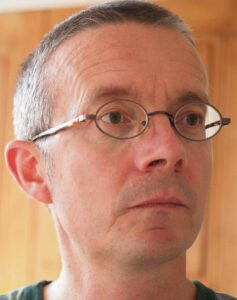
Pierre Carrolaggi
Pierre Carrolaggi is professor of pedagogy, training director, and coordinator of the pedagogical laboratory of Greta du Velay, where works since 1992. He graduated as agronomical engineer and has studied social sciences. His main activities are the creation of training programs, training of trainers, consultancy in education and pedagogy, development of innovation, the creation of e-learning methods and tools, the diagnosis of training needs, and consulting in the use of ICTs in employment and training actions. He is a European advisor and international expert in skill-based curricula and ICTs applied to education by the French Ministry of Education, Employment and Agriculture, and is used to working in a transnational context.
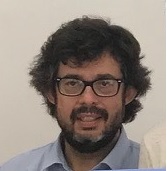
Carlo Zoli
Electronic Engineer; CEO of Smallcodes Ltd. Founder of Smallcodes Ltd as a social and technological company focused on education and linguistic technologies, with a special interest in minority languages and cultures, dialectology studies and historical linguistics.
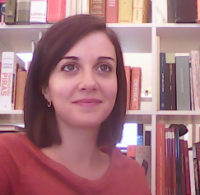
Silvia Randaccio
Silvia Randaccio has a degree in European and Extra-European languages, with a thesis in computational linguistics for the Arabic language. She works for the ICT company Smallcodes, based in Florence, Italy, which deals with linguistic policies and digital resources for minority languages. She currently follows numerous projects for the development of linguistic software, teaching materials, e-learning platforms and digital archives, for minority languages but also for other product sectors. She also manages digital marketing, SEO and web graphics. She has also undertaken several external collaborations as a consultant, teacher and project partner for various entities that have allowed her to learn about new realities and work sectors.

Luca Pietra
Engineer and new member of SMALLCODES through ScarabLab. He is currently involved in deepening his knowledge of the various programming languages and supporting senior programmers in the implementation of software for health informatics.
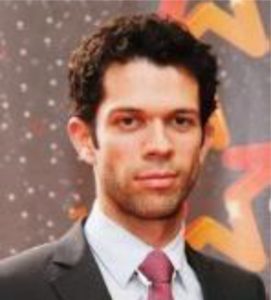
Jivago Nunes
Jivago Nunes have a degree on Optoelectronics and Lasers, and a Master in Materials Engineering, and worked as a scientific researcher during 5 years. After that, he has been the CTO of the company Somatica, Materials and Solutions, Lda. for the last 10 years and, as an entrepreneur, he have created 5 companies during the last 7 years.

Panagiotis Karampelas
He works as a teacher in secondary technical education with specialization in computers and design implementation circuits and also the design and development of algorithmic structures. Now days is the Headmaster in VET Secondary School. He has 2 Masters, Ecomomics in Education and In School Managment.
Also, Manage and Organize Erasmus Plus Projects (KA1-KA2) and E-Twinning.
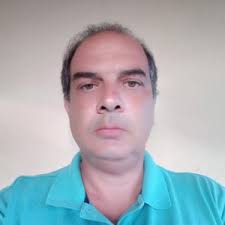
Panagiotis Chatzipapas
Panagiotis Chatzipapas is agronomist. He studied Agricultural Biotechnology at Agricultural University of Athens and he did his Master in Applied Biology and Biotechnology at faculty of Biology in the University of Patras. He teaches agriculture at 1st Epagelmatiko Lykeio Kato Achaias and he is the head of Agriculture, ICT and Economy sector. A very important part of his activity in VET, is to design and implement training projects for students and teachers in VET.

Luis Martins
Luis Martins is a Phd Student at the Universitat Politècnica de València. After graduating Applied Biology from the Minho University took a masters in Biophysics and Bionanosystems on the same university. Additionally, has diplomas in Pedagogic Competences and Advanced English from Cambridge University and competences in computer aided design, 3d printing and basic programming, apart from the general ability with technology and productivity tools one expects from a high grade student. Luis has experience in tutoring, orienting students projects or laboratorial practices. On the other hand he had given private tuttoring several times in science fields and english mostly to university students. Luis if fluent in English, Portuguese and Spanish having some basic knoledge of French.

Víctor García Ortuño
Technical Engineer in Industrial Chemistry, postgraduate degree in “European Industrial Management”. He is a proactive, enterprising and innovative person with experience in the design, advice, management and evaluation of projects in very diverse fields. He has been a member of the Valencian School Board and of the social negotiation board of the GVA Department of Education, with extensive experience in the legislative development of education.
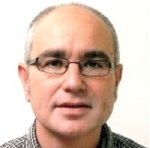
Antonio Soriano Martínez
Industrial technical engineer in the specialty of industrial electronics. He has been a teacher for 20 years. In addition, he has 7 years of professional experience in private companies (naval and chemical industry) as a process automation technician. He is a deputy head of studies and teaches Electrotechnical and Automated Systems at the CIFP POLITÉCNICO DE CARTAGENA.
